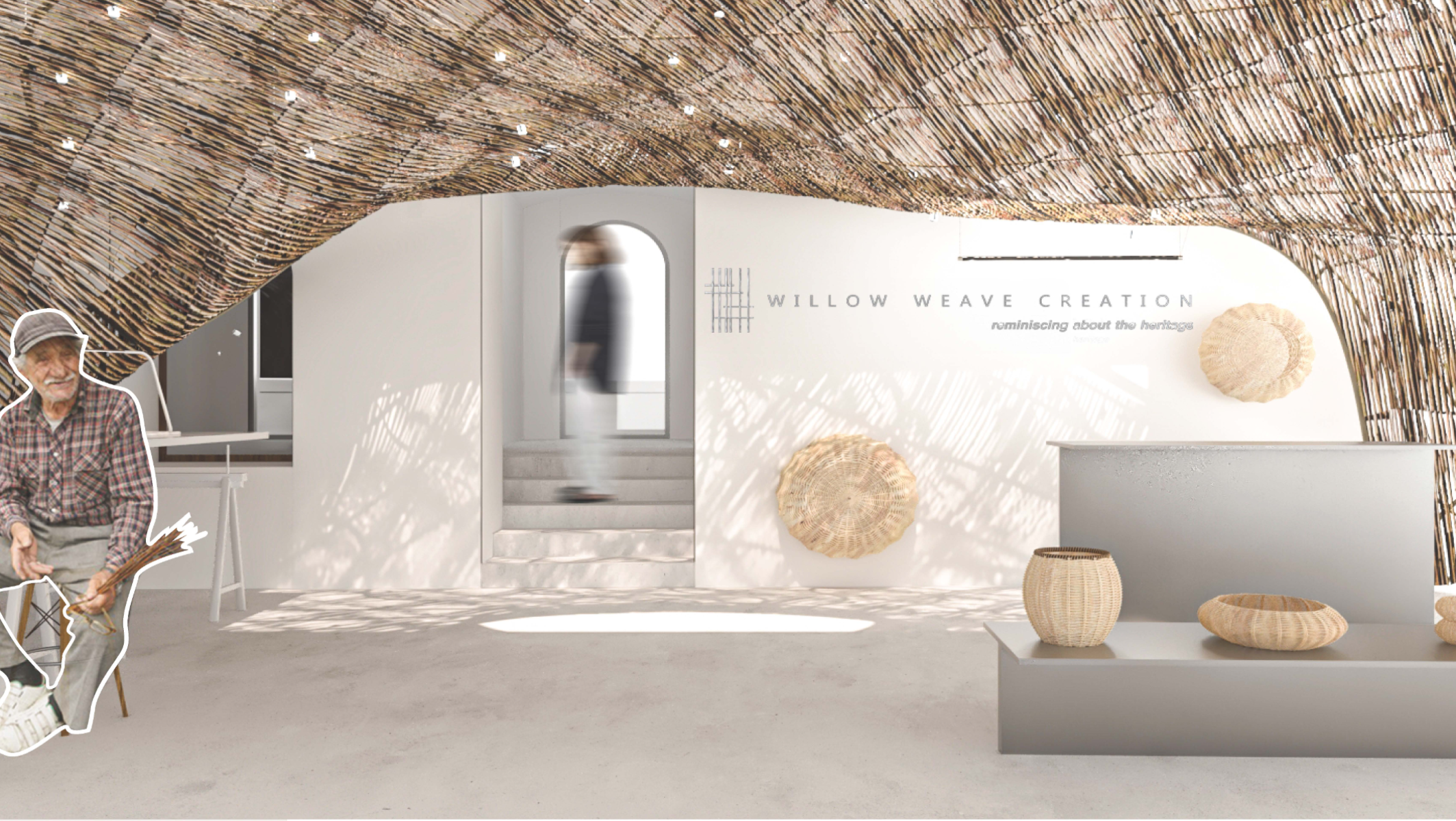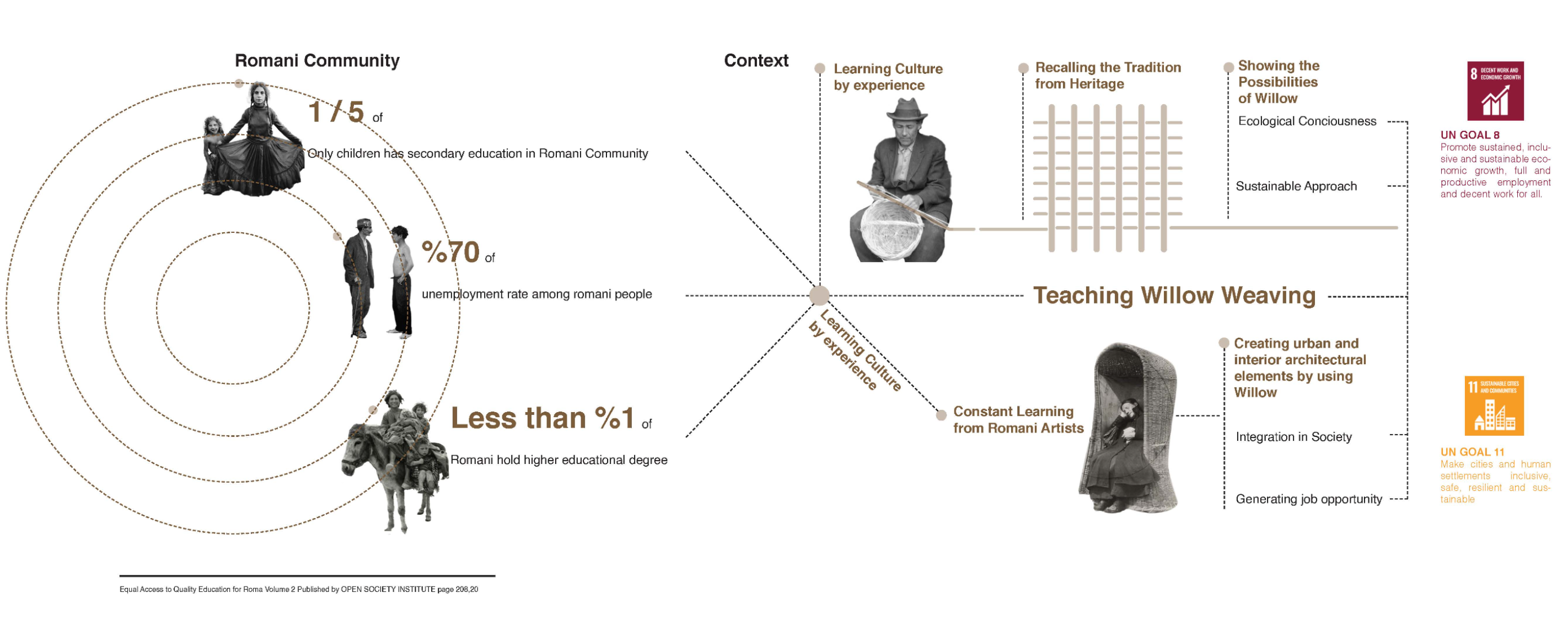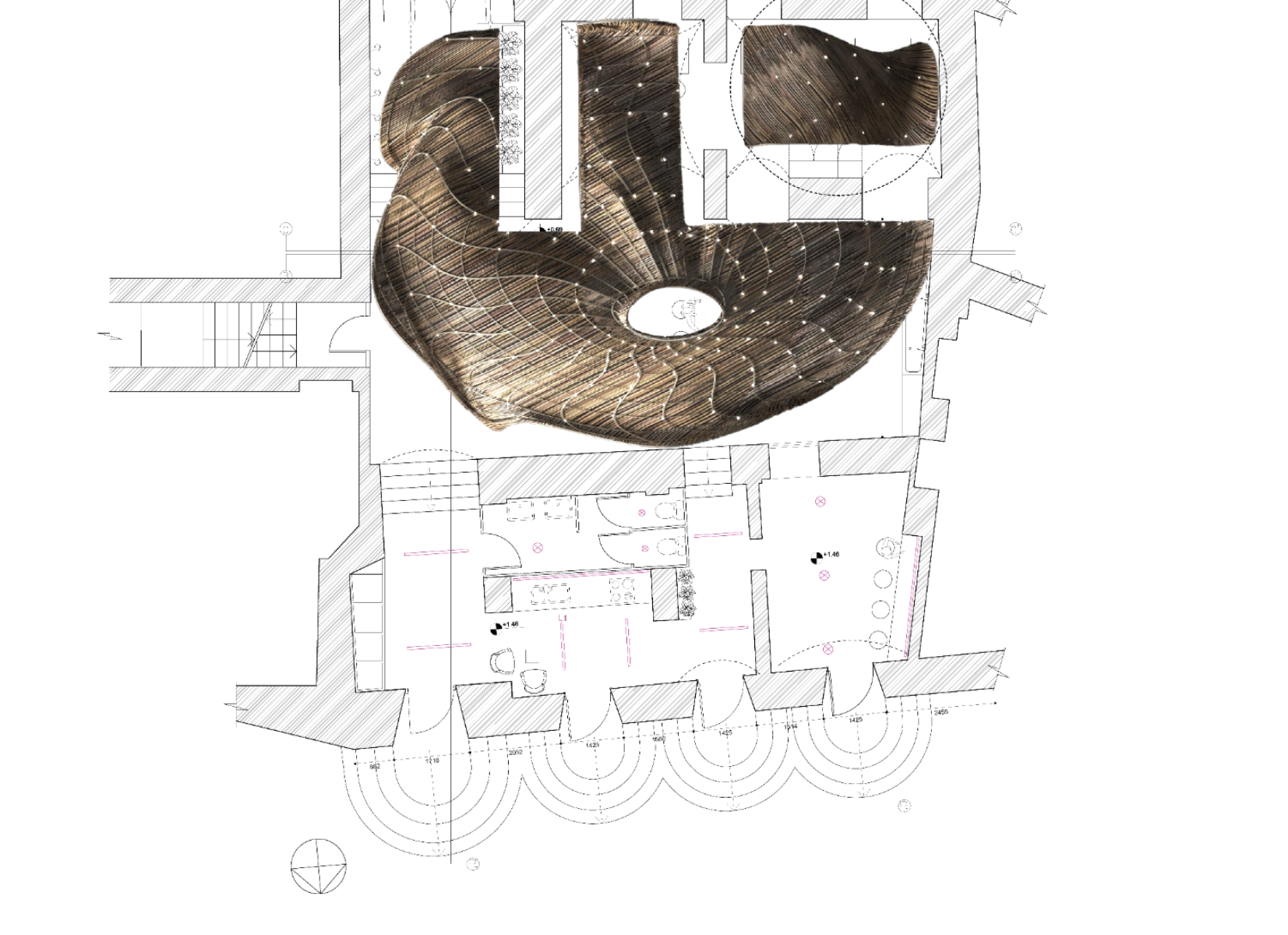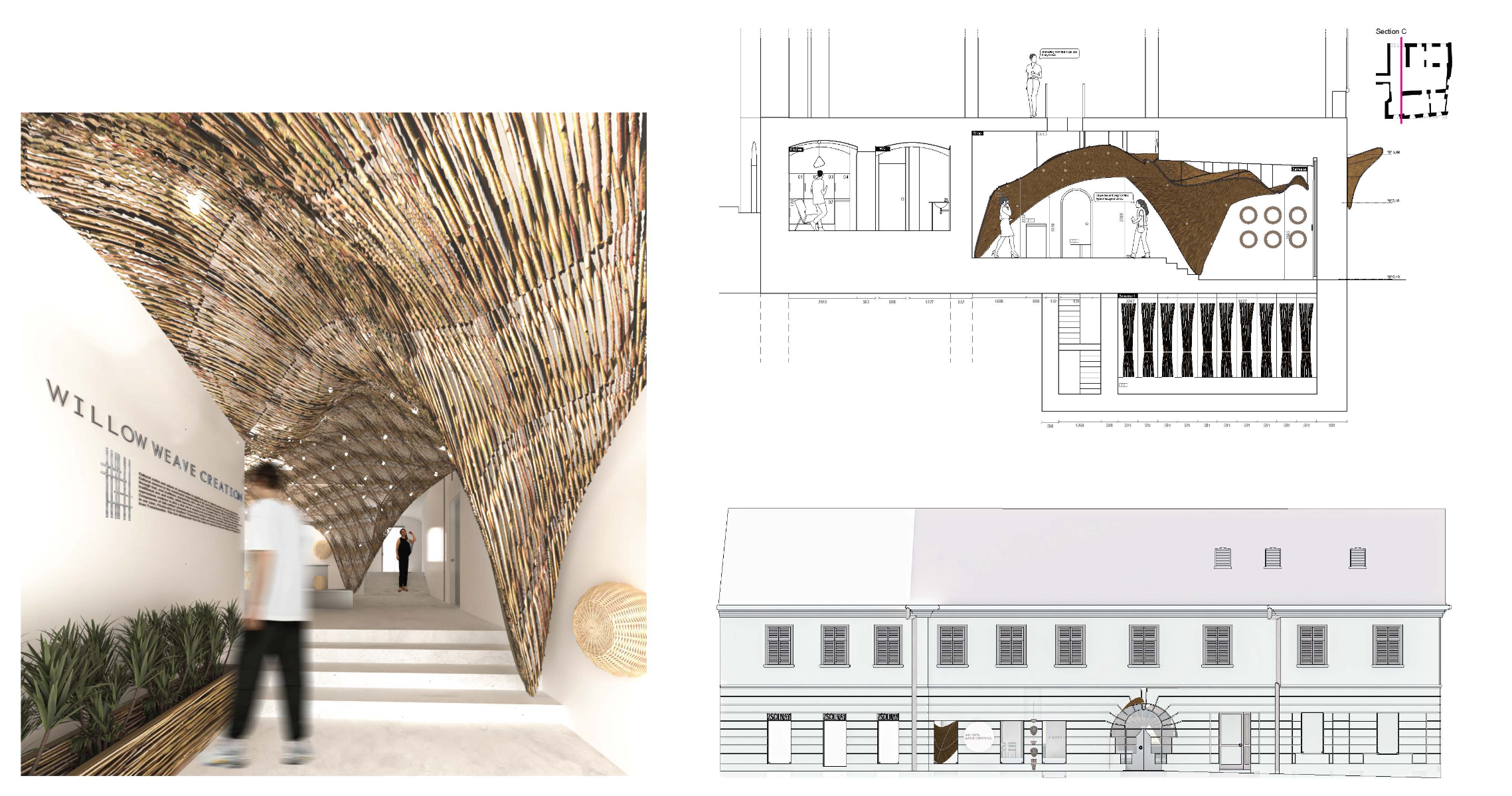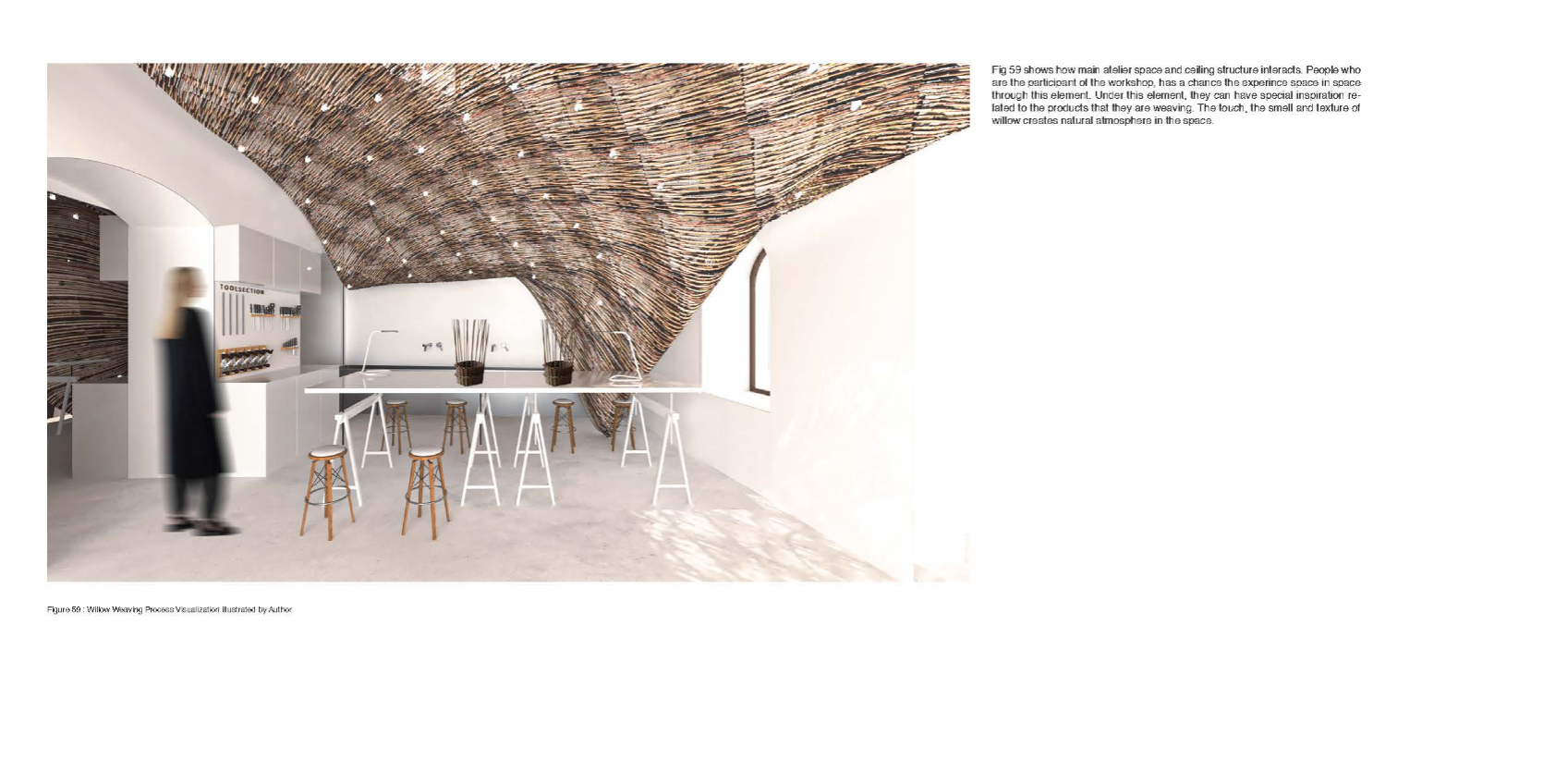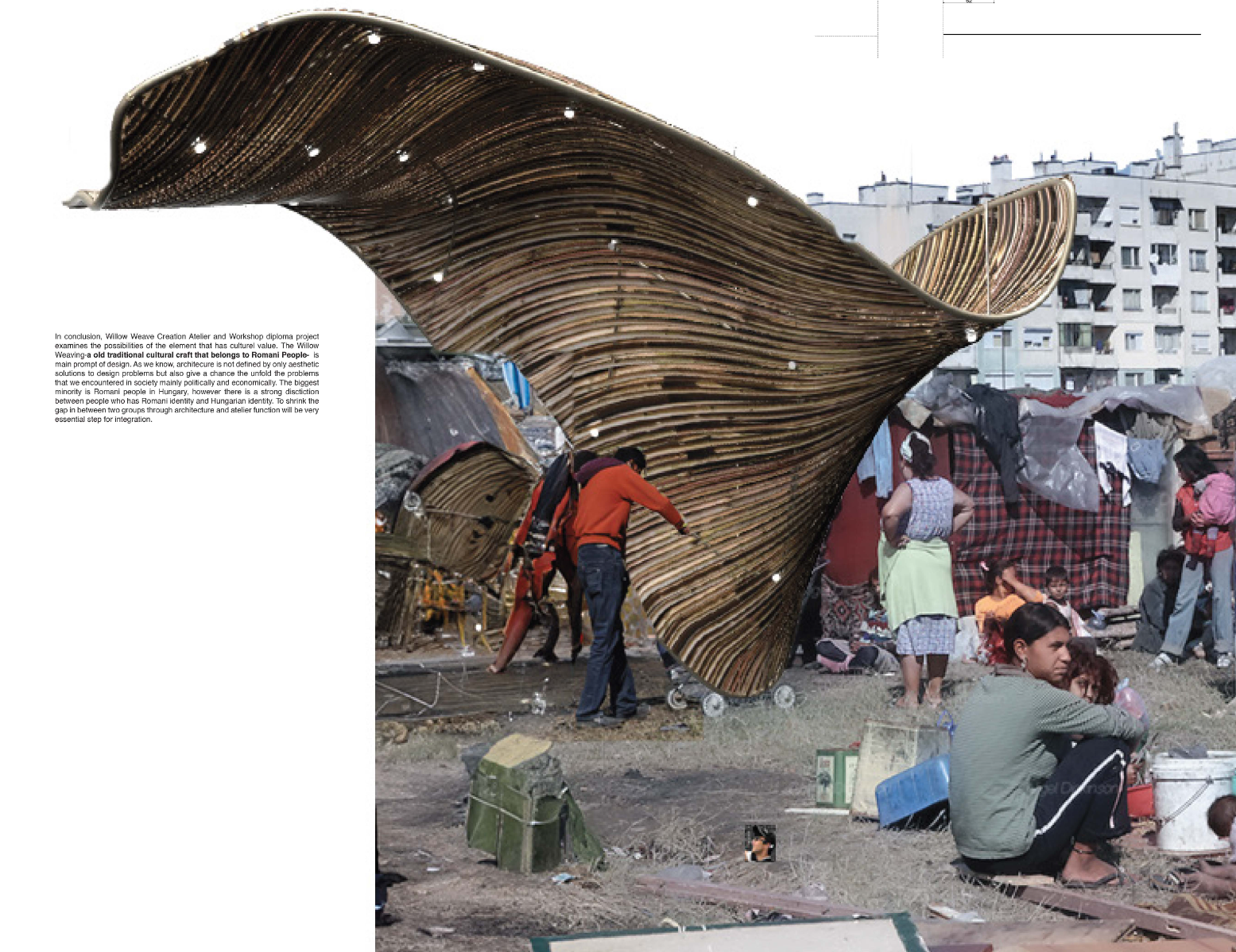Ezgi su demirci
mASTER'S OF İNTERİOR AND SPATİAL DESİGN
University of Pécs
Graduates: 2024
Specialisms: Interior Architecture / Design Research / Design for Social Good
My location: Budapest, Hungary
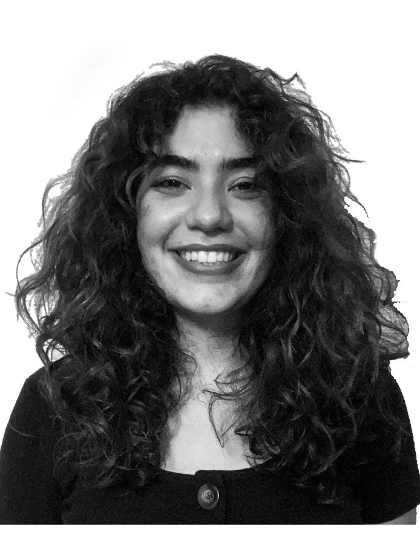

Ezgi su demirci

First Name: Ezgi su
Last Name: demirci
University / College: University of Pécs
Course / Program: mASTER'S OF İNTERİOR AND SPATİAL DESİGN
Graduates: 2024
Specialisms: Interior Architecture / Design Research / Design for Social Good
My Location: Budapest, Hungary
About
willow weave creation-reminiscing about heritage
The Roma population in Eastern Europe represents a diverse and resilient community with a rich cultural heritage. However, this community continues to face significant social, economic, and political challenges. Over the years, Romani people have been subjected to discrimination and social exclusion, issues that have become even more pronounced since the fall of communism. This persistent segregation within society has led to urban gentrification, which, in turn, affects the Romani people’s ‘right to the city.’ One of the consequences of this urban problem is the limited access to educational opportunities within Romani communities. The purpose of this study is to examine the practice of willow weaving—an ancient traditional craft of the Romani people—and explore its potential future applications within urban and architectural contexts. The research questions focus on the sustainability of materials used in willow weaving, its cost-effectiveness, and the potential for this craft to contribute to increasing employment rates in areas where Romani communities are the majority. Through my research and experiences in various regions, I have observed how indigenous communities, including the Romani, are often marginalized in terms of culture, urban living, and lifestyle. I believe that architecture is a powerful tool for socio-political change. This fellowship offers a crucial opportunity to engage deeply with the Romani community, honoring their cultural craft through basket weaving. My aim is to use this interaction to create impactful solutions that improve the lives of marginalized communities.
Competitions

